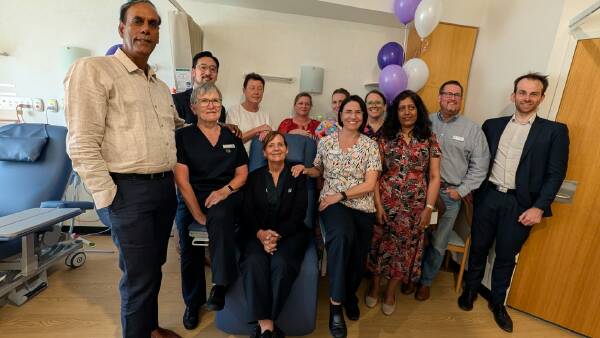
A recent study suggests that routine liquid biopsy testing could significantly improve early cancer diagnoses, potentially transforming the way cancer is detected and treated. The findings, published in the peer-reviewed journal CANCER by the American Cancer Society, indicate that implementing multi-cancer early detection tests could lead to a substantial reduction in advanced-stage diagnoses, allowing for earlier interventions.
Currently, routine screening is limited to just four types of cancer, leaving around 70% of new cases to be identified only after symptoms arise, often at a late stage. Late-stage cancer diagnosis typically correlates with lower survival rates, highlighting the critical need for improved screening methods. Multi-cancer early detection tests, such as Cancerguard, offer a promising alternative by enabling simultaneous screening for multiple cancer types from a single blood draw.
Study Insights and Methodology
To assess the impact of such tests, researchers utilized epidemiological data from the Surveillance, Epidemiology, and End Results database and developed a simulation model encompassing 14 cancer types, which account for nearly 80% of cancer incidence and mortality. The study simulated a 10-year disease progression for 5 million US adults aged 50-84 years and evaluated the effects of integrating an annual blood-based multi-cancer early detection test into standard healthcare practices.
The results indicated that over a decade, the addition of multi-cancer early detection testing could lead to notable increases in earlier-stage diagnoses: a 10% rise in stage I, a 20% rise in stage II, and a 30% rise in stage III diagnoses. Conversely, there would be a 45% decrease in stage IV diagnoses compared to standard care protocols. The most significant absolute reductions in stage IV diagnoses were observed in lung, colorectal, and pancreatic cancers, while the largest relative reductions were seen in cervical, liver, and colorectal cancers.
Implications for Cancer Control
Dr. Jagpreet Chhatwal, the study’s lead author and Director of the Institute for Technology Assessment at Massachusetts General Hospital and Harvard Medical School, emphasized the transformative potential of these tests. “Our analysis shows that multi-cancer blood tests could be a game changer for cancer control,” he stated. “By detecting cancers earlier — before they spread — these tests could potentially improve survival and reduce the personal and economic burden of cancer.”
The implications of this research extend beyond individual patients; the potential for earlier diagnoses could lead to significant changes in treatment protocols and healthcare costs. As the healthcare community continues to seek innovative solutions for cancer detection, the adoption of routine liquid biopsy testing could represent a significant advancement in the fight against cancer.
For further insights, a free abstract of this article will be available via the CANCER Newsroom, providing additional context and details on this groundbreaking research.







